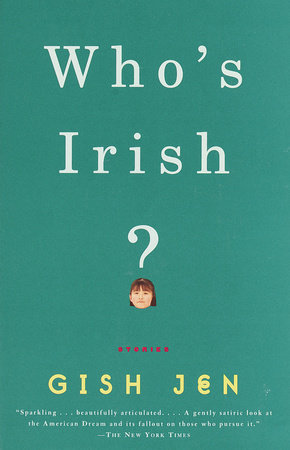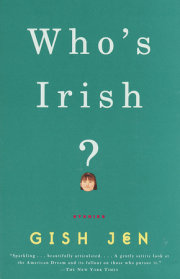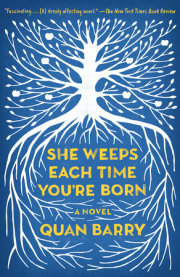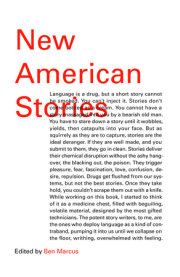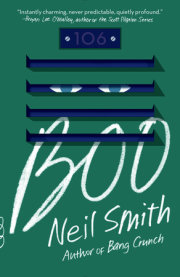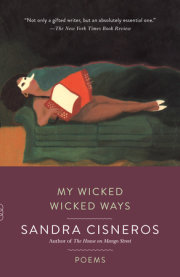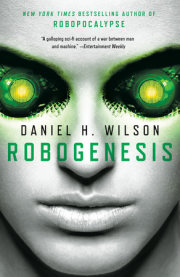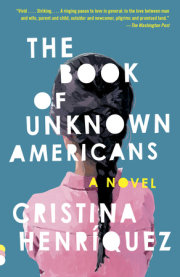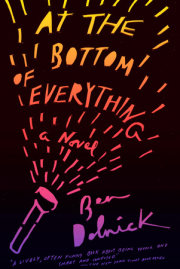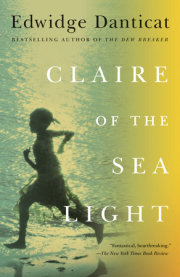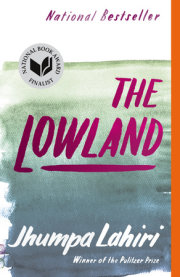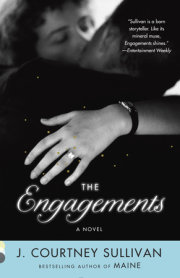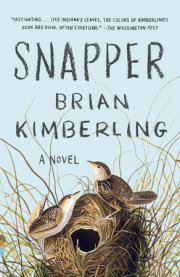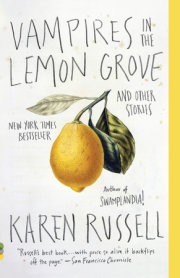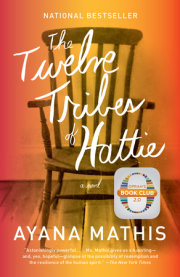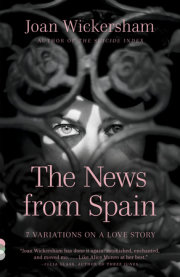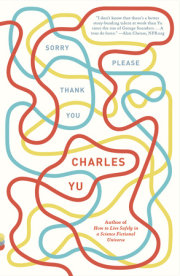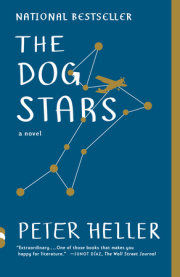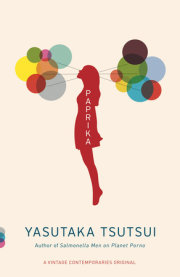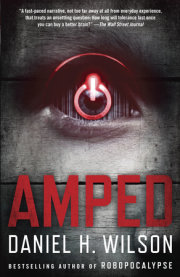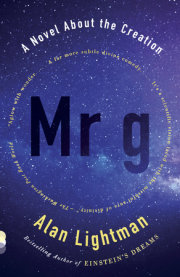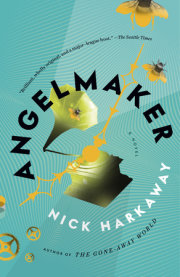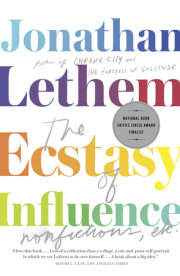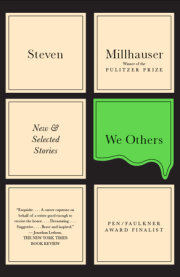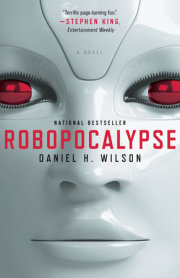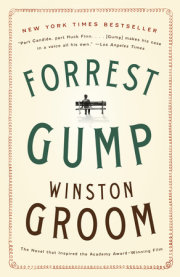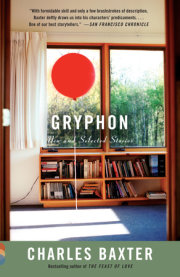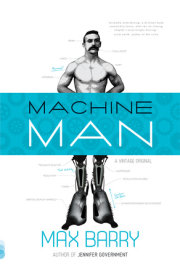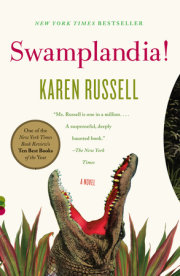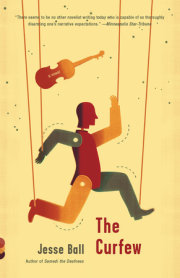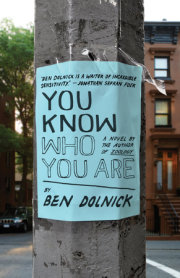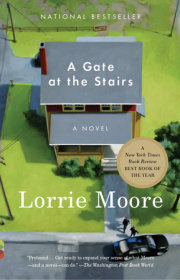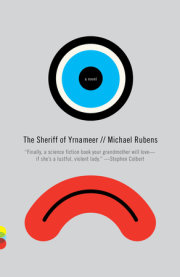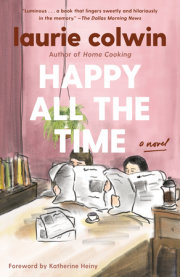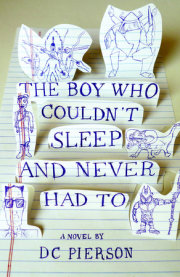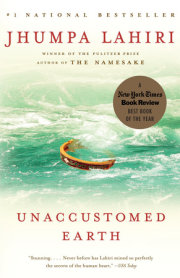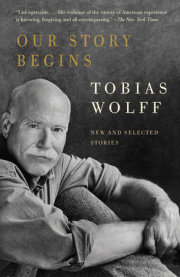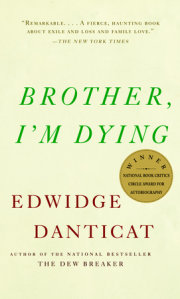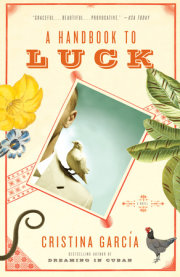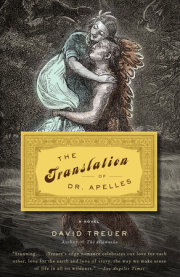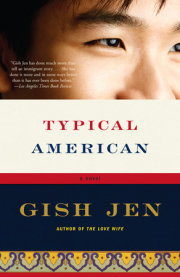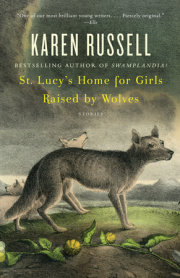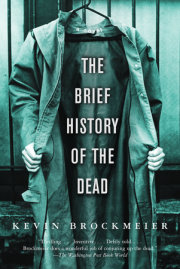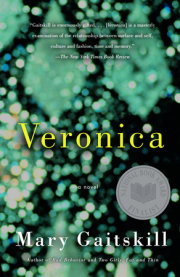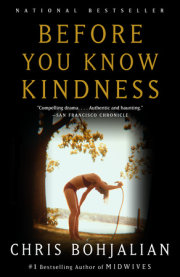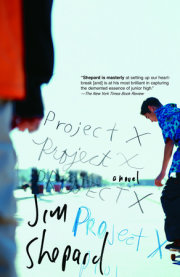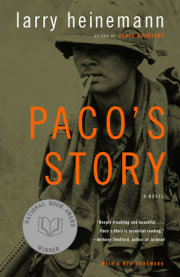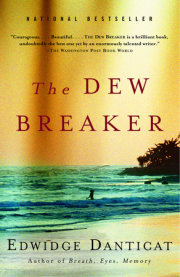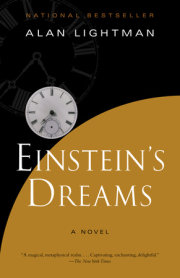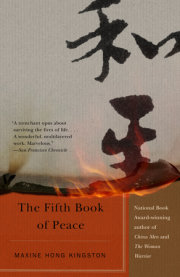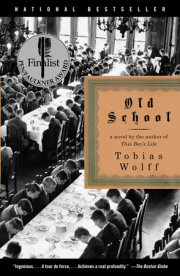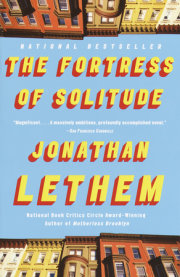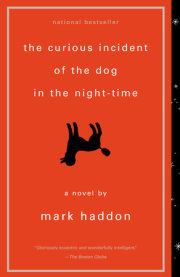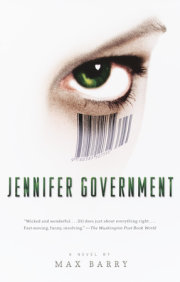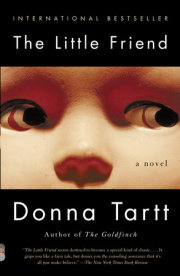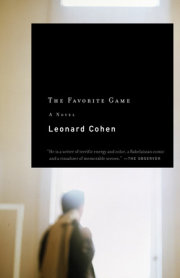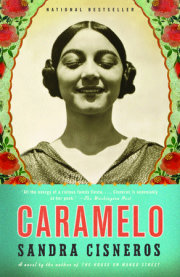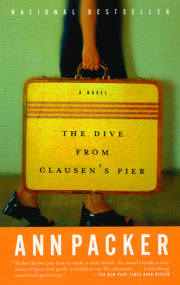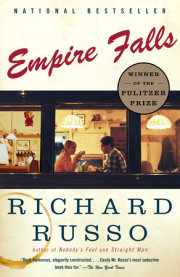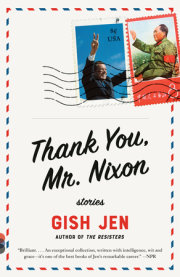From "Who's Irish"
In China, people say mixed children are supposed to be smart, and definitely my granddaughter Sophie is smart. But Sophie is wild, Sophie is not like my daughter Natalie, or like me. I am work hard my whole life, and fierce besides. My husband always used to say he is afraid of me, and in our restaurant, busboys and cooks all afraid of me too. Even the gang members come for protection money, they try to talk to my husband. When I am there, they stay away. If they come by mistake, they pretend they are come to eat. They hide behind the menu, they order a lot of food. They talk about their mothers. Oh, my mother have some arthritis, need to take herbal medicine, they say. Oh, my mother getting old, her hair all white now.
I say, Your mother's hair used to be white, but since she dye it, it become black again. Why don't you go home once in a while and take a look? I tell them, Confucius say a filial son knows what color his mother's hair is.
My daughter is fierce too, she is vice president in the bank now. Her new house is big enough for everybody to have their own room, including me. But Sophie take after Natalie's husband's family, their name is Shea. Irish. I always thought Irish people are like Chinese people, work so hard on the railroad, but now I know why the Chinese beat the Irish. Of course, not all Irish are like the Shea family, of course not. My daughter tell me I should not say Irish this, Irish that.
How do you like it when people say the Chinese this, the Chinese that, she say.
You know, the British call the Irish heathen, just like they call the Chinese, she say.
You think the Opium War was bad, how would you like to live right next door to the British, she say.
And that is that. My daughter have a funny habit when she win an argument, she take a sip of something and look away, so the other person is not embarrassed. So I am not embarrassed. I do not call anybody anything either. I just happen to mention about the Shea family, an interesting fact: four brothers in the family, and not one of them work. The mother, Bess, have a job before she got sick, she was executive secretary in a big company. She is handle everything for a big shot, you would be surprised how complicated her job is, not just type this, type that. Now she is a nice woman with a clean house. But her boys, every one of them is on welfare, or so-called severance pay, or so-called disability pay. Something. They say they cannot find work, this is not the economy of the fifties, but I say, Even the black people doing better these days, some of them live so fancy, you'd be surprised. Why the Shea family have so much trouble? They are white people, they speak English. When I come to this country, I have no money and do not speak English. But my husband and I own our restaurant before he die. Free and clear, no mortgage. Of course, I understand I am just lucky, come from a country where the food is popular all over the world. I understand it is not the Shea family's fault they come from a country where everything is boiled. Still, I say.
She's right, we should broaden our horizons, say one brother, Jim, at Thanksgiving. Forget about the car business. Think about egg rolls.
Pad thai, say another brother, Mike. I'm going to make my fortune in pad thai. It's going to be the new pizza.
I say, You people too picky about what you sell. Selling egg rolls not good enough for you, but at least my husband and I can say, We made it. What can you say? Tell me. What can you say?
Everybody chew their tough turkey.
I especially cannot understand my daughter's husband John, who has no job but cannot take care of Sophie either. Because he is a man, he say, and that's the end of the sentence.
Plain boiled food, plain boiled thinking. Even his name is plain boiled: John. Maybe because I grew up with black bean sauce and hoisin sauce and garlic sauce, I always feel something is missing when my son-in-law talk.
But, okay: so my son-in-law can be man, I am baby-sitter. Six hours a day, same as the old sitter, crazy Amy, who quit. This is not so easy, now that I am sixty-eight, Chinese age almost seventy. Still, I try. In China, daughter take care of mother. Here it is the other way around. Mother help daughter, mother ask, Anything else I can do? Otherwise daughter complain mother is not supportive. I tell daughter, We do not have this word in Chinese,
supportive. But my daughter too busy to listen, she has to go to meeting, she has to write memo while her husband go to the gym to be a man. My daughter say otherwise he will be depressed. Seems like all his life he has this trouble, depression.
No one wants to hire someone who is depressed, she say. It is important for him to keep his spirits up.
Beautiful wife, beautiful daughter, beautiful house, oven can clean itself automatically. No money left over, because only one income, but lucky enough, got the baby-sitter for free. If John lived in China, he would be very happy. But he is not happy. Even at the gym things go wrong. One day, he pull a muscle. Another day, weight room too crowded. Always something.
Until finally, hooray, he has a job. Then he feel pressure.
I need to concentrate, he say. I need to focus.
He is going to work for insurance company. Salesman job. A paycheck, he say, and at least he will wear clothes instead of gym shorts. My daughter buy him some special candy bars from the health-food store. They say THINK! on them, and are supposed to help John think.
John is a good-looking boy, you have to say that, especially now that he shave so you can see his face.
I am an old man in a young man's game, say John.
I will need a new suit, say John.
This time I am not going to shoot myself in the foot, say John.
Good, I say.
She means to be supportive, my daughter say. Don't start the send her back to China thing, because we can't.
Sophie is three years old American age, but already I see her nice Chinese side swallowed up by her wild Shea side. She looks like mostly Chinese. Beautiful black hair, beautiful black eyes. Nose perfect size, not so flat looks like something fell down, not so large looks like some big deal got stuck in wrong face. Everything just right, only her skin is a brown surprise to John's family. So brown, they say. Even John say it. She never goes in the sun, still she is that color, he say. Brown. They say, Nothing the matter with brown. They are just surprised. So brown. Nattie is not that brown, they say. They say, It seems like Sophie should be a color in between Nattie and John. Seems funny, a girl named Sophie Shea be brown. But she is brown, maybe her name should be Sophie Brown. She never go in the sun, still she is that color, they say. Nothing the matter with brown. They are just surprised.
The Shea family talk is like this sometimes, going around and around like a Christmas-tree train.
Maybe John is not her father, I say one day, to stop the train. And sure enough, train wreck. None of the brothers ever say the word
brown to me again.
Instead, John's mother, Bess, say, I hope you are not offended.
She say, I did my best on those boys. But raising four boys with no father is no picnic.
You have a beautiful family, I say.
I'm getting old, she say.
You deserve a rest, I say. Too many boys make you old.
I never had a daughter, she say. You have a daughter.
I have a daughter, I say. Chinese people don't think a daughter is so great, but you're right. I have a daughter.
I was never against the marriage, you know, she say. I never thought John was marrying down. I always thought Nattie was just as good as white.
I was never against the marriage either, I say. I just wonder if they look at the whole problem.
Of course you pointed out the problem, you are a mother, she say. And now we both have a granddaughter. A little brown granddaughter, she is so precious to me.
I laugh. A little brown granddaughter, I say. To tell you the truth, I don't know how she came out so brown.
We laugh some more. These days Bess need a walker to walk. She take so many pills, she need two glasses of water to get them all down. Her favorite TV show is about bloopers, and she love her bird feeder. All day long, she can watch that bird feeder, like a cat.
I can't wait for her to grow up, Bess say. I could use some female company.
Too many boys, I say.
Boys are fine, she say. But they do surround you after a while.
You should take a break, come live with us, I say. Lots of girls at our house.
Be careful what you offer, say Bess with a wink. Where I come from, people mean for you to move in when they say a thing like that.
Nothing the matter with Sophie's outside, that's the truth. It is inside that she is like not any Chinese girl I ever see. We go to the park, and this is what she does. She stand up in the stroller. She take off all her clothes and throw them in the fountain.
Sophie! I say. Stop!
But she just laugh like a crazy person. Before I take over as baby-sitter, Sophie has that crazy-person sitter, Amy the guitar player. My daughter thought this Amy very creative--another word we do not talk about in China. In China, we talk about whether we have difficulty or no difficulty. We talk about whether life is bitter or not bitter. In America, all day long, people talk about creative. Never mind that I cannot even look at this Amy, with her shirt so short that her belly button showing. This Amy think Sophie should love her body. So when Sophie take off her diaper, Amy laugh. When Sophie run around naked, Amy say she wouldn't want to wear a diaper either. When Sophie go
shu-shu in her lap, Amy laugh and say there are no germs in pee. When Sophie take off her shoes, Amy say bare feet is best, even the pediatrician say so. That is why Sophie now walk around with no shoes like a beggar child. Also why Sophie love to take off her clothes.
Turn around! say the boys in the park. Let's see that ass!
Of course, Sophie does not understand. Sophie clap her hands, I am the only one to say, No! This is not a game.
It has nothing to do with John's family, my daughter say. Amy was too permissive, that's all.
But I think if Sophie was not wild inside, she would not take off her shoes and clothes to begin with.
You never take off your clothes when you were little, I say. All my Chinese friends had babies, I never saw one of them act wild like that.
Look, my daughter say. I have a big presentation tomorrow.
John and my daughter agree Sophie is a problem, but they don't know what to do.
You spank her, she'll stop, I say another day.
But they say, Oh no.
In America, parents not supposed to spank the child.
It gives them low self-esteem, my daughter say. And that leads to problems later, as I happen to know.
My daughter never have big presentation the next day when the subject of spanking come up.
I don't want you to touch Sophie, she say. No spanking, period.
Don't tell me what to do, I say.
I'm not telling you what to do, say my daughter. I'm telling you how I feel.
I am not your servant, I say. Don't you dare talk to me like that.
My daughter have another funny habit when she lose an argument. She spread out all her fingers and look at them, as if she like to make sure they are still there.
My daughter is fierce like me, but she and John think it is better to explain to Sophie that clothes are a good idea. This is not so hard in the cold weather. In the warm weather, it is very hard.
Use your words, my daughter say. That's what we tell Sophie. How about if you set a good example.
As if good example mean anything to Sophie. I am so fierce, the gang members who used to come to the restaurant all afraid of me, but Sophie is not afraid.
I say, Sophie, if you take off your clothes, no snack.
I say, Sophie, if you take off your clothes, no lunch.
I say, Sophie, if you take off your clothes, no park.
Pretty soon we are stay home all day, and by the end of six hours she still did not have one thing to eat. You never saw a child stubborn like that.
I'm hungry! she cry when my daughter come home.
What's the matter, doesn't your grandmother feed you? My daughter laugh.
No! Sophie say. She doesn't feed me anything!
My daughter laugh again. Here you go, she say.
She say to John, Sophie must be growing.
Growing like a weed, I say.
Still Sophie take off her clothes, until one day I spank her. Not too hard, but she cry and cry, and when I tell her if she doesn't put her clothes back on I'll spank her again, she put her clothes back on. Then I tell her she is good girl, and give her some food to eat. The next day we go to the park and, like a nice Chinese girl, she does not take off her clothes.
She stop taking off her clothes, I report. Finally!
How did you do it? my daughter ask.
After twenty-eight years experience with you, I guess I learn something, I say.
It must have been a phase, John say, and his voice is suddenly like an expert.
His voice is like an expert about everything these days, now that he carry a leather briefcase, and wear shiny shoes, and can go shopping for a new car. On the company, he say. The company will pay for it, but he will be able to drive it whenever he want.
A free car, he say. How do you like that.
It's good to see you in the saddle again, my daughter say. Some of your family patterns are scary.
At least I don't drink, he say. He say, And I'm not the only one with scary family patterns.
That's for sure, say my daughter.
Copyright © 1999 by Gish Jen. All rights reserved. No part of this excerpt may be reproduced or reprinted without permission in writing from the publisher.

